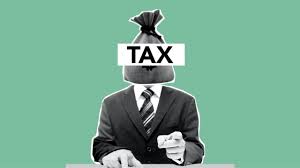Over 99% of Nigeria’s wealthiest individuals evade or avoid paying taxes, leaving millions of Nigerians trapped in poverty, according to a recent report by Oxfam.
The report, published on October 15, was based on two detailed studies, Income and Wealth Inequality in Nigeria: Trends and Drivers and Taxing the Rich Fair Tax Monitor.
It noted that there is a gap in tax compliance among the country’s elite, while much of the population struggles with economic hardship.
Only 40 of the wealthiest Nigerians, representing 0.035%, were found to be compliant taxpayers, according to the Federal Inland Revenue Service (FIRS) and John Bean Technologies Corporation (JBT).
This tax avoidance by high-net-worth individuals deprives the government of billions in potential revenue that could be used to improve public services, such as healthcare, education, and infrastructure, which are essential for poverty alleviation.
“The situation in Nigeria is alarming: while millions struggle to afford their next meal, the super-rich continue to amass riches without paying their fair share of taxes.” John Makina, Oxfam’s Nigeria Country Director,
“Complexities in tax laws, coupled with a lack of transparency, enable this situation, depriving the country of crucial revenue needed to invest in social protection and initiatives aimed at reducing inequality. This is a scenario we can no longer accept if we are genuinely committed to building a more equitable society.”
Meanwhile, the country’s economic situation is critical, with millions struggling to make ends meet as prices rise faster than wages, leaving many hungry and desperate.
According to the report, over 133 million people—about 7 in 10—are facing hunger, with women and girls disproportionately affected, making up nearly 63% of the hungry population.
In rural areas, it was reported that less than 40% of households have access to electricity, severely limiting educational opportunities and access to healthcare, while women and girls bear a heavier burden of poverty, with a 35% literacy rate compared to 59.5% for men, and they have limited access to education and land ownership.
“To make matters worse, the country is on the verge of bankruptcy, with the poorest states, like Sokoto, suffering an 87% poverty rate, in stark contrast to just 4.5% in Lagos,” the report stated.
“The growing debt burden means that most of the national budget is spent on paying off loans instead of funding essential public services.”
Oxfam estimates that implementing a progressive wealth tax could generate over $7.5 billion annually, noting that “with more than 20 million children out of school, it is not acceptable to continue giving wealthy individuals and companies tax breaks, incentives, and waivers.”
The $7.5 billion annual revenue, according to Oxfam, would be sufficient to double the government’s current health budget or reduce household out-of-pocket health expenditures by 40%, significantly easing the financial burden on millions of Nigerians.
It, however, called on the government to raise social sector spending to at least 10% of the budget in health, education, and agriculture, stating that Nigeria currently allocates only 2-3.5% of its budget to education and 4-7% to healthcare, well below global standards.
Oxfam also urged the movement to establish a wealth tax targeting high-net-worth individuals, adding that a 1% tax on net worth over $1 million could raise $7.5 billion annually, which could fund critical social programmes.
Henry Ushie, lead author of the report, also called for immediate action, saying, “The findings of this report are clear: Nigeria’s growing inequality is not just an economic issue but a social crisis that threatens long-term stability. With the wealth gap widening every year, immediate action is needed. Increasing social spending, reforming the tax system, and investing in human capital can help reverse these trends.”

